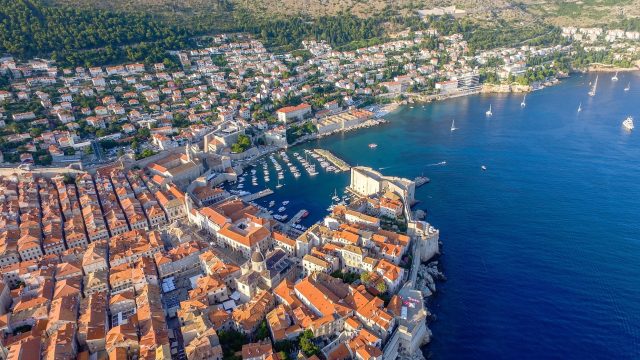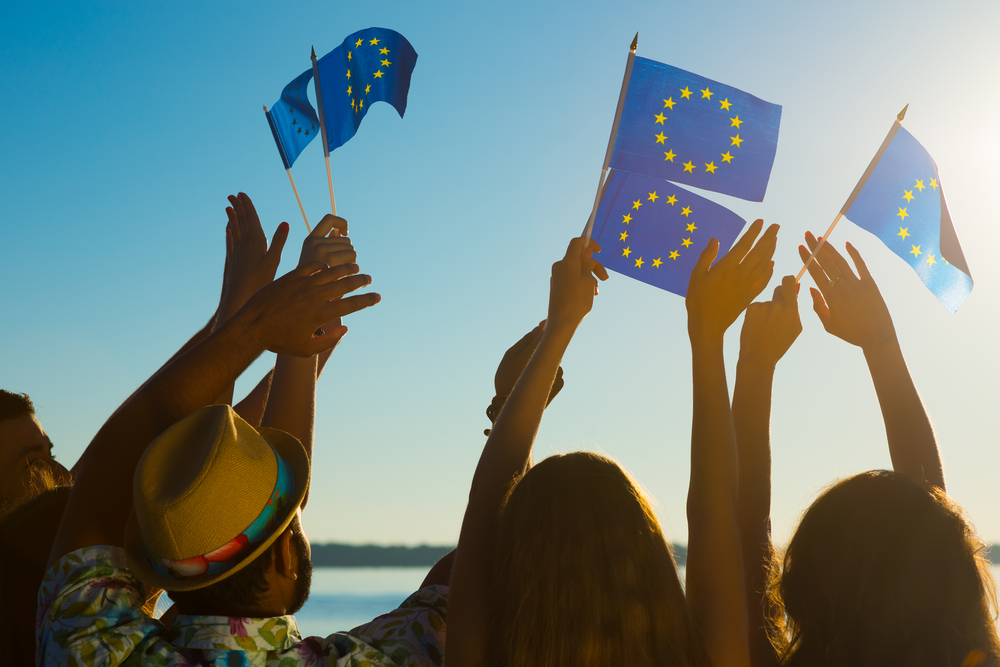
On October 18th-20th in Dubrovnik, the large family of European conservatives together with supporters of the conservative movement will participate in the second edition of the European Congress on Family in Dubrovnik. As the very title of the event suggests, conservative family values in a changing Europe will be at the center of the discussions and topics on the conference agenda.
Traditional conservative family values continue to play a key role in shaping the national and regional identities of the citizens of the European Union and the other countries of Europe. Europe, a continent that has been hit by rapid social change in recent decades, is characterized as a continent with a much greater cultural diversity than the rest of the world. These cultural values, which are deeply rooted in traditions, religion and communities, often contrast with trends of modernization and globalization, creating a constant dialogue between past and present. However, despite the challenges brought by the social and economic changes that have hit the old continent, traditional family values not only survive, but also evolve to face new realities.
What are conservative family values?
When we talk about conservative family values, we are referring to a set of principles and norms that support the role of the family as the fundamental unit of the society in which we live. These values include, among many other things, respect for parental authority, support for traditional marriage between a man and a woman, and the importance of well-defined roles within the family. Traditionally and implicitly conservatively, the family is seen as an institution that provides stability, nurture and emotional support, as well as being the foundation of wider communities. This is why in many European countries these conservative values are closely linked to religious traditions, such as Christianity (Europe is a Christian continent), but also to customs and cultural norms specific to each nation. For example, in countries such as Poland and Italy, the influence of Catholicism remains strong in upholding the family view, while in the Balkan countries and Eastern Europe, Orthodoxy and conservative local traditions play a similar role.
Evolution of conservative family values in the context of social change
Not only the European Union as a legal entity but the whole of Europe is facing a series of challenges and changes. These changes, often legislative, have a major impact on the family and traditional values. Major factors of these changes include globalization, migration, women’s empowerment and technological development. It can no longer be denied that technology is a part of our lives and automatically a part of our children’s lives. Global studies have shown that the increasing speed of access to information and the excessive use of technology is decreasing the ability to concentrate, both among children and adults. These are just some of the forces that have helped to reshape the social landscape of the European continent. Well, all these changes have led to the diversification of traditional family forms, such as single-parent families, same-sex couples adopting children and intercultural marriages, challenging traditional norms.

It is well known that in Western European countries, including the Netherlands and Sweden, laws and social policies have taken a more open attitude towards various forms of family, legalizing same-sex marriage and recognizing civil partnerships. In central and eastern Europe, however, the reactions of governments and populations to these changes have often been more conservative. Many countries in central and eastern Europe have managed to maintain policies that uphold traditional values, reflecting a tension between modernization and conservatism.
The conservative family and national identity
Conservative family values are closely linked to national identity in many European countries. This is why the concept of the traditional family is seen not only as a social unit, but also as a symbol of cultural continuity and resilience in the face of global change. For example, in Hungary, the government has introduced social policies to encourage the birth rate and measures to support the traditional family. Through these policies the Hungarian state has tried to emphasize the importance of preserving a distinct cultural identity in an increasingly diverse Europe. And this link between the traditional family and national identity is also becoming evident in political rhetoric. This is why conservative politicians often emphasize the importance of protecting the traditional family as a way of defending national culture and traditions from external influences perceived as a threat. The family thus becomes a symbolic battleground between national values and the pressures created by globalization.
Tensions and challenges
While conservative family values continue to be present and relevant in most European Union countries, they are often challenged by demographic and social changes. The low birth rates in many European countries have led some countries, as mentioned earlier in the case of Hungary, to adopt measures to stimulate population growth, but also to reconsider immigration policies. Changes in gender roles and the empowerment of women have also led to a reconfiguration of traditional family dynamics, and the acceptance of gender and sexual orientation diversity has brought new perspectives on how modern families are defined and perceived.
Another important factor directly affecting the idea of the conservative family is migration. The European Union has seen an exponential increase in the number of migrants in recent decades. These migrants have brought with them increased cultural diversity. There have been numerous cases where the family values of migrant communities have clashed with local norms. These conflicts have generated heated debates on migrant integration and multiculturalism. If we look at multicultural conflicts and debates from this perspective, it can be argued that they can more often than not reinforce conservative policy positions, emphasizing the need to protect what is perceived as the ‘essence’ of national culture.
Adaptability and continuity
We must recognize that change is inevitable, and that many conservative communities and families have demonstrated a remarkable ability to adapt to these waves of change. Traditions and values are not fixed and they can evolve over time. For example, while many families continue to value traditional gender roles, there is a growing recognition of the need for equality and partnership in modern relationships. Moreover, social policies and initiatives to support the family have adapted to include diverse family forms, without abandoning the basic idea that the family remains a vital component of society. In this respect, the European Union seeks to strike a balance between upholding traditional values and adapting to new social realities.
In conclusion, conservative family values in Europe are witnessing a complex transition. On the one hand, they are firmly rooted in fundamental principles, anchoring individuals and communities in traditional and cultural identities. This is why moral education and the promotion of a balanced lifestyle can ensure solidarity between generations. Responsibility towards the community, educating and nurturing new generations of young people are seen as conservative values underpinning the stability of society in a European Union at a crossroads. On the other hand, current social and economic changes call for a redefinition of how these values are lived and passed on to the inhabitants of the old continent. There is no denying that the whole of Europe is constantly changing. That is why the dialogue between tradition and modernity is essential to build a society that respects diversity but also preserves the essence of the values that have defined it over the ages.



 Subscribe
Subscribe